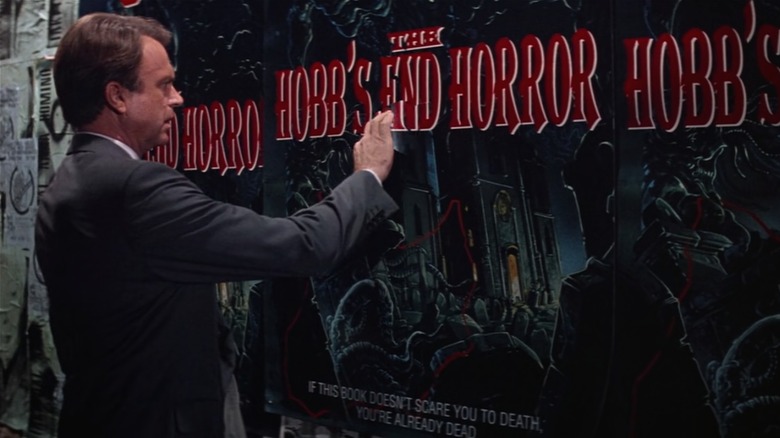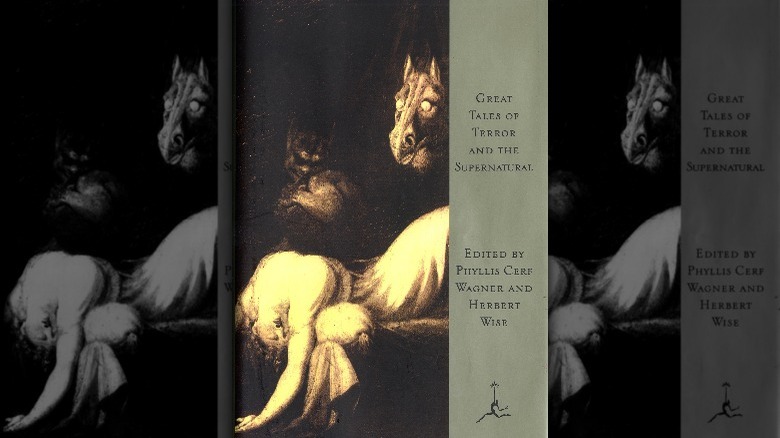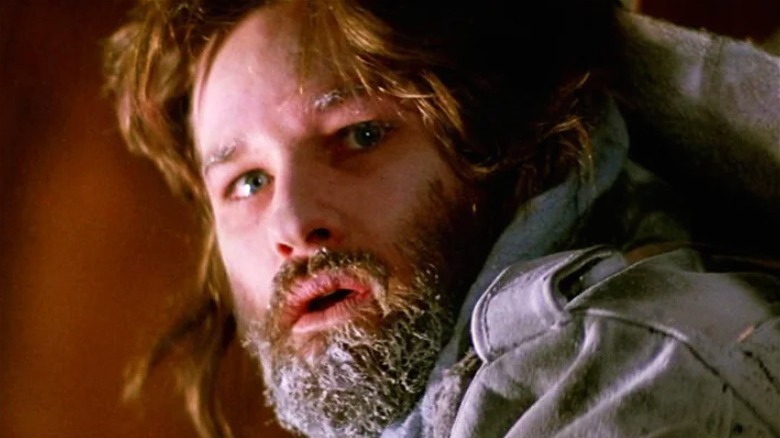The Book That Started John Carpenter's Love Of Horror
Throughout the course of his career, John Carpenter has directed horror movies that have redefined the genre in several ways. His 1978 horror classic, "Halloween" is nothing less than a full-blown pop culture phenomenon, and his lesser-known films, such as "Prince of Darkness," is still being discovered by horror-heads. Carpenter's legacy obviously extends beyond his filmmaking, as he is also a composer with a penchant for creating original soundtracks meant to enhance the source material. Despite being a man of many talents, Carpenter's love for horror seeps into everything he makes, be it hypnotic tales of terror or fast-paced action pieces with horror elements.
So, when exactly did Carpenter discover his affinity towards the genre? The director has been inspired by a string of classic horror writers, as his work has often been adaptations of the works of John W. Campbell, H.P. Lovecraft, and Stephen King. The Lovecraftian influence is evident in his "In the Mouth of Madness," which pays tribute to the ideas of the unknown, the old gods, and the manifestation of cosmic horror within our immediate reality. While Lovecraft still remains a key influence in Carpenter's understanding of the genre, the director credits one particular book that managed to ignite his love for horror. What book might that be?
A horror anthology book that started it all
In an interview with Vulture, where Carpenter talked about his favorite horror and sci-fi writers, he said that his dad had gifted him a book of "horror tales" that had started it all:
"There are a lot of science-fiction writers I grew up on and love: Harry Harrison and others. My dad gave me a book called Great Tales of Terror and the Supernatural. That's where I got my horror tales started. Then, the movies were the big thing for me."
First published in 1944, "Great Tales of Terror and the Supernatural" is a collection of 52 horror stories of varied tints. This horror anthology is the perfect starting point for anyone interested in what the genre has to offer, as it consists of stories by the likes of Edgar Allan Poe, Guy de Maupassant, Henry James, and Algernon Blackwood. Interestingly, the book also contains Lovecraft's "The Dunwich Horror," which might have been Carpenter's introduction to the writer's body of work, which later influenced his films. Moreover, the variety of tales in the collection, which ranged from detective-style suspense stories to unnerving cautionary tales, might have exposed Carpenter to the various tints of horror, which he later experimented with throughout the course of his career.
Carpenter also mentioned Harry Harrison as one of his favorite sci-fi writers, whose work was sharp, satirical, and subversive. There are many instances of Harrison being unapologetically anti-establishment via his work, especially in his 1966 breakthrough novel, "Make Room! Make Room!" Carpenter also adopted aspects of this ideology in "They Live," which still emerges as a timeless critique of the capitalist megastructure and the effect it has on the populace.
Science fiction and horror often go hand in hand
In the same interview, Carpenter reaffirmed his love for Lovecraft and talked about the influence that sci-fi writers like Ray Bradbury had on him in his formative years. Bradbury has best known for penning speculative science fiction, which inevitably invites discussions about the unknown and the horrors that might plague us in the near future. Bradbury's "It Came from Outer Space" riffs on the idea of a crashed meteor that unleashes an alien force on earth, which is also the basic foundation of Carpenter's "The Thing." However, "The Thing" focuses less on the creature's origins and more on the haze of paranoia it creates, which lends to a unique cinematic experience rooted in the fear of the unknown.
Circling back to Lovecraft, Carpenter explained that the cosmic horror writer stands out as a major literary influence, not because of the "florid English style" but due to the vast imagination that acts as a framework for the stories themselves. For instance, Lovecraft's novella, "In the Mountains of Madness" delves into the hidden history of the human race and the existence of entities that defy comprehension, and the horror is both explicit and implied. Carpenter was inspired by this form of storytelling, which led to "In the Mouth of Madness," which is a fever dream of a tale about the idea of insanity and how it spreads like a virus, relentless and unchecked.
Carpenter is a master of horror, who is clearly capable of creating layered tales that function on multiple levels of terror. It is always interesting to explore his literary inspirations, which helped shape his outlook in some form and influenced his dynamic filmography.


